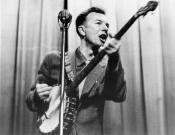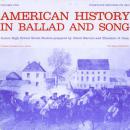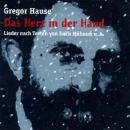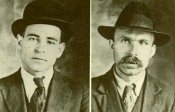If nothing happens they will electrocute us right after midnight
Therefore here I am, right with you, with love and with open heart,
As I was yesterday.
Don’t cry, Dante, for many, many tears have been wasted,
As your mother’s tears have been already wasted for seven years,
And never did any good
So son, instead of crying, be strong, be brave
So as to be able to comfort your mother.
And when you want to distract her from the discouraging soleness
You take her for a long walk in the quiet countryside,
Gathering flowers here and there.
And resting under the shade of trees, beside the music of the waters,
The peacefulness of nature, she will enjoy it very much,
As you will surely too.
But son, you must remember; Don’t use all yourself.
But down yourself, just one step, to help the weak ones at your side.
The weaker ones, that cry for help, the persecuted and the victim.
They are your friends, friends of yours and mine, they are the comrades that fight,
Yes and sometimes fall.
Just as your father, your father and Bartolo have fallen,
Have fought and fell yesterday. for the conquest of joy,
Of freedom for all.
In the struggle of life you’ll find, you’ll find more love.
And in the struggle, you will be loved also.
Therefore here I am, right with you, with love and with open heart,
As I was yesterday.
Don’t cry, Dante, for many, many tears have been wasted,
As your mother’s tears have been already wasted for seven years,
And never did any good
So son, instead of crying, be strong, be brave
So as to be able to comfort your mother.
And when you want to distract her from the discouraging soleness
You take her for a long walk in the quiet countryside,
Gathering flowers here and there.
And resting under the shade of trees, beside the music of the waters,
The peacefulness of nature, she will enjoy it very much,
As you will surely too.
But son, you must remember; Don’t use all yourself.
But down yourself, just one step, to help the weak ones at your side.
The weaker ones, that cry for help, the persecuted and the victim.
They are your friends, friends of yours and mine, they are the comrades that fight,
Yes and sometimes fall.
Just as your father, your father and Bartolo have fallen,
Have fought and fell yesterday. for the conquest of joy,
Of freedom for all.
In the struggle of life you’ll find, you’ll find more love.
And in the struggle, you will be loved also.
Contributed by Riccardo Venturi - 2006/1/6 - 11:07
Language: Italian
Versione italiana di Riccardo Venturi
6 gennaio 2006
6 gennaio 2006
LETTERA DI SACCO A SUO FIGLIO
Se niente accade, ci porteranno alla sedia elettrica poco dopo mezzanotte
e quindi sono qui, accanto a te, con amore e aprendo il mio cuore
come lo ero ieri.
Non piangere, Dante, perché tante, troppe lacrime sono andate sprecate,
perché le lacrime di tua madre sono già andate sprecate per sette anni,
e non hanno portato a nulla di buono.
E così, figlio mio, invece di piangere, sii forte e coraggioso
così da poter confortare tua madre.
E quando vorrai sollevarla dalla scoraggiante solitudine,
portala a fare una lunga passeggiata nella tranquilla campagna
raccogliendo fiori qua e là.
Riposatevi all’ombra degli alberi, in compagnia della musica delle acque
e della natura piena di pace; le piacerà molto,
così come certamente piacerà a te.
Ma, figlio mio, ricordati bene: non stancarti troppo,
ma mettiti sempre sotto, solo un passo, ad aiutare i deboli che ti stanno accanto.
I più deboli, che invocano aiuto, i perseguitati, la vittima.
Sono i tuoi amici, amici miei e tuoi, sono i compagni che lottano,
sì, e che, talvolta, cadono
proprio come tuo padre, tuo padre e Bartolo sono caduti.
Hanno lottato e ieri sono caduti, per conquistare la gioia
e la libertà per tutti.
Nella lotta per la vita troverai ancora più amore,
e, lottando, sarai anche amato.
Se niente accade, ci porteranno alla sedia elettrica poco dopo mezzanotte
e quindi sono qui, accanto a te, con amore e aprendo il mio cuore
come lo ero ieri.
Non piangere, Dante, perché tante, troppe lacrime sono andate sprecate,
perché le lacrime di tua madre sono già andate sprecate per sette anni,
e non hanno portato a nulla di buono.
E così, figlio mio, invece di piangere, sii forte e coraggioso
così da poter confortare tua madre.
E quando vorrai sollevarla dalla scoraggiante solitudine,
portala a fare una lunga passeggiata nella tranquilla campagna
raccogliendo fiori qua e là.
Riposatevi all’ombra degli alberi, in compagnia della musica delle acque
e della natura piena di pace; le piacerà molto,
così come certamente piacerà a te.
Ma, figlio mio, ricordati bene: non stancarti troppo,
ma mettiti sempre sotto, solo un passo, ad aiutare i deboli che ti stanno accanto.
I più deboli, che invocano aiuto, i perseguitati, la vittima.
Sono i tuoi amici, amici miei e tuoi, sono i compagni che lottano,
sì, e che, talvolta, cadono
proprio come tuo padre, tuo padre e Bartolo sono caduti.
Hanno lottato e ieri sono caduti, per conquistare la gioia
e la libertà per tutti.
Nella lotta per la vita troverai ancora più amore,
e, lottando, sarai anche amato.
Non è un commento, ma una richiesta d'aiuto e una segnalazione. Esiste una canzone di Gregor Hause intitolata Requiem für Sacco und Vanzetti: ho trovato la canzone su e-mule, ma il testo no. Ci riuscite voi? Grazie infinite
Renato
Renato
Renato Stecca - 2007/5/27 - 08:26
×
![]()
Note for non-Italian users: Sorry, though the interface of this website is translated into English, most commentaries and biographies are in Italian and/or in other languages like French, German, Spanish, Russian etc.








Parole da una lettera Nicola Sacco elaborata da Woody Guthrie
Musica e interpretazione di Pete Seeger
in "The Ballads of Sacco and Vanzetti" di Woody Guthrie
Lyrics from a letter by Nicola Sacco worked out by Woody Guthrie
Music and performance by Pete Seeger
in "The Ballads of Sacco and Vanzetti" by Woody Guthrie
Inserita a partire dal 1951 nelle varie edizioni delle "Ballads of Sacco and Vanzetti" di Woody Guthrie, questa canzone fu, a suo tempo (2006), proprio quella che diede inizio al percorso su Sacco e Vanzetti. Tratta da un'autentica lettera che Nicola Sacco scrisse al figlio, fu elaborata in inglese da Woody Guthrie per far parte delle sue "Ballads" rimaste incompiute; nel 1951, in pieno maccartismo, fu finalmente musicata e cantata dal grande Pete Seeger nel 1951, nel clima di "caccia alle streghe" che non avevano mancato di colpire lo stesso Seeger, dichiaratamente di convinzioni comuniste e libertarie. Le parole sono riprese direttamente dall'ultima lettera che Nicola Sacco scrisse al figlio maggiore, Dante, prima di essere, alla mezzanotte stessa in punto, portato sulla sedia elettrica. Una lettera straordinaria che divenne, grazie a Seeger, un'altrettanto straordinaria canzone che, da allora, forma parte integrante come dodicesimo brano delle "Ballads" di Gutrhie e dalle quali non può essere separata. (RV)
2. I Just Want To Sing Your Name
3. Old Judge Thayer
4. Red Wine
5. Root Hog And Die
6. Suassos Lane
7. Two Good Men
8. Vanzetti's Letter
9. Vanzetti's Rock
10. We Welcome To Heaven
11. You Souls Of Boston
12. Sacco's Letter To His Son (Pete Seeger)
Ballads of Sacco and Vanzetti è una raccolta di ballate folk scritte e interpretate dal cantautore americano Woody Guthrie, ispirate alla vicenda di Sacco e Vanzetti. Le ballate furono commissionate da Moses Asch nel 1945, e registrate tra il 1946 e il 1947. Guthrie non completò mai il progetto, e si ritenne insoddisfatto dal lavoro, sebbene suo figlio Arlo Guthrie, a sua volta cantautore professionista, giudicò le ballate del ciclo "Sacco e Vanzetti", tra le migliori mai composte da suo padre. Una canzone inedita, "Sacco's Letter To His Son", fu registrata da Pete Seeger per il progetto.
Ballads of Sacco & Vanzetti is a set of ballad songs, written and performed by Woody Guthrie, related to the trial, conviction and execution of Sacco and Vanzetti. The series was commissioned by Moe Asch in 1945 and recorded in 1946 and 1947. Guthrie never completed the project and was unsatisfied by the result. The project was released later in its abandoned form by Asch. An unreleased track, "Sacco's Letter To His Son" was recorded by Pete Seeger for the project.
Moses Asch was the founder/head of Folkways Records, which made available the music of Leadbelly, Woody Guthrie and Pete Seeger. Without this music, what would Dylan have been? Tom Piazza, writing in the April 1995 issue of The Atlantic Monthly, gives a history of Folkway Records and of Moses Asch:
"Born in Poland in 1905, Asch arrived in the United States when he was ten years old. He spent a few years in German in the early 1920s, studying electronics, but by the time he found himself back in New York, in 1926, his interest in American folk music had been stirred by his discovery, in a bookstall on a Paris quay, of John Lomax's book Cowboy Songs and Other Frontier Ballads.
"While building radio equipment and arranging sound systems for clients ranging from Yiddish theaters to burlesque houses on the Lower East Side, Asch came up with the idea of creating a record label to document the music that the larger commercial labels tended to leave alone.
"His idea was nourished not only by a love for the music itself but also by a brand of leftist populism in which folk expression was a voice for the disenfranchised. By taste and political conviction, Asch was attracted to the raw and the otherwise unheard.
"In the early 1940s he started two record companies, Asch and Disc. Both failed. Before folding them Asch recorded his most important artists -- the singer and songwriter Woody Guthrie and great twelve-string guitarist and singer Leadbelly.
"In 1947 Asch started Folkways, and this time it worked. Until his death, in 1986, Asch was Folkways' president, chief financial officer, talent scout, audio engineer, and sometimes shipping clerk."
"In 1987, the Smithsonian bought out Folkways, agreeing to keep all 2,200 Folkways albums in print. By writing or calling Smithsonian/Folkways (414 Hungerford Drive, Suite 444, Rockville, MD 20850; 301-443-2314 or fax 301-443-1819) one can order any Folkways title and receive a high-quality cassette, along with the original descriptive notes, for about $11. A free copy of the The Whole Folkways Catalogue, which lists every title, should be ordered first.
"It is," concludes Piazza in The Atlantic Monthly, "the definitive guide to Asch's bold, eccentric, priceless legacy."
It was an indirect impact on Dylan, but very major.
radiohazak.com